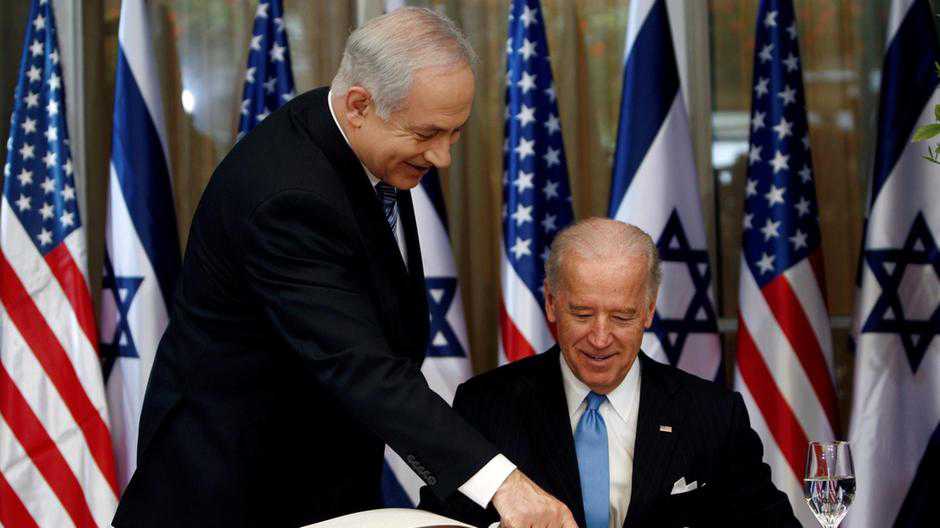With Netanyahu gone, Biden breathes sigh of relief but dissimilarities with Israel remain
15 June, 2021

Following the Knesset vote on Sunday that ended the Benjamin Netanyahu era, it took US President Joe Biden less than 25 minutes to issue a statement congratulating Israel’s new prime minister, Naftali Bennett, and less than two hours to schedule a call with him.
The swift reaction - which made the US the first country to provide its congratulations to Mr Bennett - was the merchandise of both a bitter history between Mr Biden and Mr Netanyahu and a desire to correct relations after 12 years of the former prime minister's divisive political style.
Mr Biden witnessed first-hand how Mr Netanyahu undermined and embarrassed Washington through the Barack Obama years.
This year 2010, when then-vice president Biden arrived in Israel on an official visit, the Netanyahu government announced an idea to expand illegal settlements in the occupied territories, undercutting US efforts to jump-start the peace process.
From there, Mr Netanyahu caused Republicans in Congress to outmanoeuvre the National government on Palestine-Israel aswell concerning hamper nuclear deal talks with Iran.
Through the Donald Trump years, Mr Netanyahu became near the former president, prodding him to reverse major decisions made under Mr Obama, such as withdrawing from the nuclear deal and making unilateral decisions that favoured Israel and punished the Palestinians.
With Mr Netanyahu gone, experts say the Biden administration will experience “inevitable relief”, but that won't help the peace process gain any momentum.
Ghaith Al Omari, senior fellow at the Washington Institute for Near East Policy and a former peace process negotiator, said Mr Netanyahu’s exit clears “a lot of the strain” that revolved around his governing style.
“His departure - especially after 12 years in office - is inevitably met with relief in the administration,” Mr Al Omari told The National.
Martin Indyk, a former US peace process envoy who had his own clashes with Mr Netanyahu through the Bill Clinton years, tweeted: “You can almost hear the relief in the news release."
But although distrust could dissipate, not absolutely all disagreements will.
Mr Al Omari argued that although atmosphere will improve, “major policy distinctions - whether on Iran or the Palestinians - will remain”.
The new government has recently made clear its opposition to the nuclear deal that the Biden team is wanting to revive with Iran in Vienna and it has not focused on avoiding unilateral steps, such as for example territorial annexation in the West Bank.
“Some aspects of the US policy - especially those related to Area C of the West Bank - are bound to create tension,” Mr Al Omari said.
Mr Bennett, of the of the nationalist right-wing Yamina party, is a proponent of annexation in your community. The US opposes such measures.
“Mr Bennett is viewed negatively by many Democrats in Congress," Mr Al Omari said, but he added that "Foreign Minister Yair Lapid has extensive, positive relations within the party".
Sources near the administration told The National that following a Gaza conflict, Washington is moving towards assigning the Palestinian-Israeli file to a high-ranking official or appointing an envoy.
The sources mentioned bigger involvement for Victoria Nuland, Under Secretary of State for Political Affairs, in deciding US strategy.
Ms Nuland accompanied US Secretary of State Antony Blinken on his latest visit to Palestine and Israel.
The other day, she addressed the American Jewish Committee and spoke about the Biden administration’s “unwavering commitment” to Israel's security and rebuilding ties with the Palestinians.
But beyond that, Mr Biden has little appetite to prioritise Palestinian-Israeli negotiations. He faces a string of domestic and foreign policy challenges, with talks an unlikely prospect anyway due to differences in the new coalition and a divided Palestinian camp.
“From the outset, the [administration] never designed to take part in high-level diplomacy and that will not change with a new Israeli government. Rather, it'll proceed using its modest but concrete objectives,” Mr Al Omari said.
Source: www.thenationalnews.com
TAG(s):
